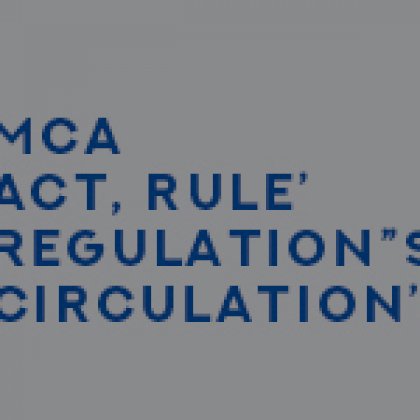Food Adulteration:-
Adulterated food is food that is usually, impure, unsafe, or unwholesome. The principal federal laws governing adulterated foods are the Federal Food, Drug, and Cosmetic Act, the Federal Meat Inspection Act, and the Poultry Products Inspection Act. These laws include separate language surrounding in very specific terms how the term "adulterated" will be used to the foods each of these laws regulates. Products that are adulterated under these laws’ comments cannot enter into commerce for human food use. State statutes may also regulate contaminated food produced or sold in the state. The selling of contaminated food is subject to civil penalties.
The food industry involves manufacturing, packaging, processing, wholesale and delivery of food products. The compromising nature of these products is compromising the health and safety of the people of the country. Therefore, the nature and standard of food that reaches the public has to be above a certain benchmark. The food contamination laws set this benchmark. Adulteration of food is described as “the addition or deduction of any material to or from food so that the natural balance and quality of food item is changed”. This results in an inferior position in the food. This can either be done deliberately for making some kind of profit or it can happen accidentally due to the negligence of the person handling the food item. In either of the case, the person is take liability for food adulteration under the laws of the country.
Central Legislation
There were some defects in the Prevention of Food Adulteration Act, 1954. Thus, to remove those spots and consolidate the laws associating with food safety and standards, the Parliament passed the Food Safety and Standards Act, 2006 (hereafter mentioned as ‘FSSA’). Adulteration of food is defined as “the interest or deduction of any material to or from food so that the This Act repealed all the other laws in force reporting to the quality of food. Section 91 of the Act enables the Central Government to make rules under the Act. Some of these rules set by the Government which sets the standard of food products are:
- Food Safety and Standards (Licensing and Certification of Food Businesses) Regulation, 2011.
- Food Safety and Standards (Packing and Labelling) Regulation, 2011.
- Food Safety and Standards (Laboratory and Sampling Dissection) Regulation, 2011.
- Food Safety and Standards (Food Output Standards and Food Additives) Regulation, 2011.
Position under the Indian Penal Code, 1860
Apart from these laws and regulations, there are provisions under the Indian Penal Code too which deal with food contamination. Chapter XIV of the Code lays down provisions trading with ‘offences concerning public health, safety, convenience, decency, and morals’. According to Section 272 and 273, food or drink adulteration or sale of such food or drink is an offence criminal with imprisonment which may increase to 6 months or fine or both. However, some states like Uttar Pradesh and West Bengal held it to be insufficient punishment and made amendments in the provision about punishment in the year 1970. The state amendment has made the offence condemned with imprisonment for life along with the possibility of a fine.
A Criminal Offence
The Indian Penal code, 1860, lays down several provisions criminalising the act of adulterating food items and also trading of consumables useless or noxious for consumption. Sections about food safety are:
- Section 272- Whoever adulterates any article of food or drink, to create such article noxious as food or drink, planning to sell such article as food or drink, or understanding it to be likely that the same will be sold as food or drink, shall be punished with imprisonment of either classification for a term which may extend to 6 months, or with fine which may extend/spared to rs.1000, or both.
- Section 273- Sale of harmful food or drink- Whoever sells, or offers or displays for sale, as food or drink, an article which has been performed or has become noxious, or is in a state unfit for food or drink, knowing or having cause to believe that the same is noxious as food or drink, shall be penalized with imprisonment of either type for a term which may extend to six months, or with fine which may extend to one thousand rupees, or with both.
Issues a consumer can complain toward
- Sale of expired food items
- Dust, insects, worms or fungus on food
- Any form of adulteration
- Incorrect packing
- Incomplete/ insufficient/improper information on food label
- Misleading commercials
- No address of maker/ marketer
- No list of harmful ingredients like MSG
- Lack of warnings
How to file a complaint?
If someone gets to know or sees a company, hotel or person taking part, assisting or perpetrating food contamination, they may file a complaint upon
- Manufacturer/ Restaurant owner/ Shopkeeper/Employer
- Local Health Authority/ Food Safety Authority’s district commissioner
- Consumer Forum
The Consumer Forum may be approached at any of the 3 levels: district level, state level or the national level. The complaints which are recorded this way will have original jurisdiction at district levels and further appellate court at a state or federal level.
Consumers can contact the FSSAI through an online platform called the ‘Food Safety Voice’. This platform gives the people the right to register complaints regarding adulterated, substandard or unsafe food, and poor labelling or misleading ads compared with food products.
- You can also file an online complaint through this platform Thelegalbank
- Or you can file a complaint working the Food Connect app, which may be downloaded from the Google Play Store.
- Once you are on the website or app, choose the right kind: Packaged Food or Premises
- Know the issue
- Explain the issue with relevant pictures
- Present the complaint
For misleading ads, you can file a complaint to the Advertising Standards Council of India. To do so,
- Go Thelegalbank
- Fill the necessary details
- Add an information and a video as proof
- Present the complaint
1[(l) Subject to the terms of subsection (I -A) it any person, -
(a) Whether by himself or by any other person on his behalf, imports into India or manufactures for sale, or stores, sells or gives any article of food—
(i) which is adulterated in the meaning of sub-clause (m) Of Cl. (i-a) of Sec. 2 or misbranded inside the meaning of Cl. (ix) of that section or the sale of’ which is forbidden under any provision of this Act or any rule made thereunder or by an order of the Food (Health) Authority;
(ii) Other than an article of food-related to in sub-clause (i), in violation of any of the provisions of this Act or of any rule made thereunder; or
(b) Whether by himself or by any other person on his side, imports into India or manufactures for sale, or stores, sells or gives any adulterant which is not harmful to health; or
(c) Prevents a Food Inspector from taking a sample as allowed by this Act: or
(d) Prevents a Food Inspector from using any other power conferred on him by or under this Act: or
(e) Being a manufacturer of an article of food has in his property, or in any of- the premises occupied by him, any adulterant which is not injurious to health; or
(f) Uses any report or record of a test or analysis made by the Director of the Central Food Laboratory or by a public analyst or any area thereof for ‘advertising any article of food; or
(g) Whether by himself or by any other person on his behalf, gives to the merchant, a false warranty in writing in honour of any article of food sold by him, he shall, in interest to the penalty to which he may be liable under the provisions of Sec. 6, be condemned with imprisonment for a term which shall not be less than 6 months but which may extend to 3 years, and with fine which shall not be less than 1000 rupees
|
Action- Your support helps & more information Platform Thelegalbank
|
No reviews found.




































































No comments found for this product. Be the first to comment!